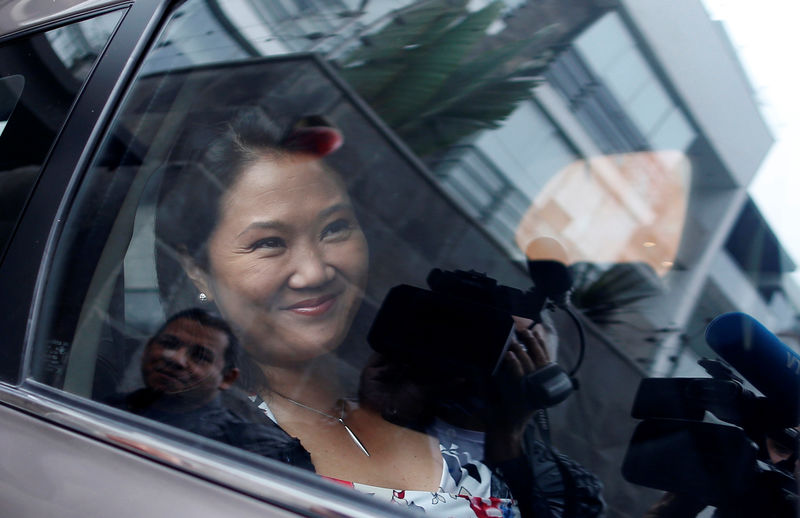By Mitra Taj
LIMA (Reuters) - Former investment banker Pedro Pablo Kuczynski inched closer to winning Peru's presidency three days after Sunday's election, holding on to a slim but steady lead over rival Keiko Fujimori with just 1 percent of votes left to tally.
Fujimori, daughter of the Andean country's imprisoned ex-president Alberto Fujimori, was trailing Kuczynski by 0.25 percentage point on Wednesday, a difference of about 42,000 votes.
Peru's electoral office ONPE said it would announce results with 100 percent of ballots processed early on Thursday. However, ONPE will not include scores of unclear ballots that regional electoral panels will settle in coming days.
Statisticians said that even if a majority of unclear ballots came out in Fujimori's favour, it would probably not be enough.
"The volume is no longer so big that it would allow her to first of all, close the gap, and on top of that, win enough to claim victory," said Manuel Saavedra, the director of the only polling firm out of three that had put Fujimori ahead of Kuczynski in its exit poll on Sunday.
Fujimori has largely remained out of the public eye since late on Sunday, when she urged her supporters to wait for complete results. Her critics on Twitter and Facebook (NASDAQ:FB) have started to call for her to concede victory to Kuczynski.
Fujimori's supporters, however, said they were still holding onto hopes that she might come out on top.
"I still hold onto that dream," congresswoman Luisa Maria Cuculiza said in broadcast comments.
Kuczynski's team said it saw victory as likely and had started preparing paperwork needed for a possible transfer of power from President Ollanta Humala.
"But it's all just preliminary, because we're only going to make moves when all ballots are processed," Kuczynski's running mate Martin Vizcarra told reporters in broadcast comments.
Fujimori had been the favourite to win the election a little over a week ago. But Kuczynski, a 77-year-old former World Bank economist and ex prime minister, caught up with her in final opinion polls after Fujimori was stung by scandals involving her close advisors and he was seen as winning the final debate.

The election for many was a referendum on the legacy of Fujimori's father, who was convicted of corruption and human rights abuse but is credited with defeating leftist guerrillas.
(Additional Reporting By Teresa Cespedes; Editing by David Gregorio)